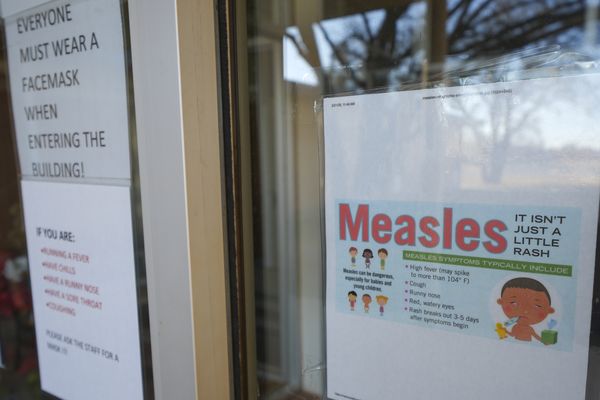
Christine Lopez is turning 49 later this year, which she says is pretty horrifying. She and her husband have been married for 17 years, and they’ve lived together in New York, Austin, and San Antonio, where they currently rent a 2,700 square-foot, four bedroom house for $3,200 a month. They have two kids.
They’ve always rented, never owned, and don’t seem to see that ever changing. At one point, owning a home felt like maybe it could be within reach, but now “it’s impossible,” Lopez told Fortune, adding that she just doesn’t see it happening.
“I mean, we make good money,” Lopez said, noting that together they make $275,000 per year—with her managing creative operations for an advertising agency and her husband, who also works in advertising, but does so in-house for a well-known company. Still, she says, “it all goes out the door.” In addition to providing for their kids, she and her partner help his parents’ out with some of their expenses, whether that be healthcare or home repairs. On top of that, they’ve both had to pay off their student loans.
Lopez earned her bachelor’s degree from the University of Miami and her master’s from New York University. She says she’s paid off $160,000 of her student loans, and that’s not even taking into account the interest that’s racked up. Lopez has $3,500 left that she says she’ll have paid off by December, which she’s very excited about. But her husband is not quite done yet. Lopez says that he’s paid off over $89,000 and has $20,000 more to go.
“Our biggest hurdle is [the] down payment…We don’t have much available to put in savings, it would take us forever to get to that,” Lopez said, adding later, “there’s really not much to save, and what we do save is not enough to make a dent in something like a housing down payment.”
Because they’re renting, they can afford to live in, what she calls, a good neighborhood with good schools, which isn’t a trade-off they’re willing to make. The average home value in San Antonio is $265,322, per Zillow, which is less than their household income. Still, San Antonio’s home prices have jumped almost 39% since March 2020 (the onset of the Pandemic Housing Boom). To put 10% down on a home worth as much as the city’s average, they’d need to have more than $26,000 saved; to put 20% down, they’d need around $53,000 saved. And let’s not forget that’s just the average home value—not necessarily the price of homes Lopez would like to buy.
Even before they moved to San Antonio, and they were living in Austin, they watched as homeownership became more and more out of reach for them, as home prices went up. Although the average home value in Austin is down over the past year, sitting at $567,255, home prices in the city have gone up 42% since March 2020.
Housing affordability is deteriorating, reaching levels unseen since the height of the housing bubble, with mortgage rates that have doubled, following a 40% increase in housing prices on a national level.
Lopez said she doesn’t see them ever owning a home “unless we win the lottery or something crazy like that.”
“It’s like how did I fail at this? We both make good money, and we still can’t manage to do this relatively simple thing,” Lopez said.
She and her partner aren’t the only high-earners that are renting instead of buying. Take this couple that, at the time, lived in Los Angeles and together made around $225,000 annually, but to them, the idea of ever owning a home there was “hilarious.” Then there’s a business owner earning around $200,000 per year, living and renting in New York City because she feels like she can’t afford to buy. Buying a home in Los Angeles and New York City has always been, at least to some degree, unaffordable for a lot of people. But it seems like this lack of affordability is beginning to penetrate middle markets.
“I mean, honestly, it’s embarrassing,” Lopez said. “It’s like, well, what did we do wrong?”
By the time they save up enough money, Lopez says their kids would be in college. And not only would they no longer need the space of a house, but they’d do everything they can to help their kids with that next step, which means they’d have even more expenses.
“We don’t want them in college to struggle with what we did,” she said. “So we’re going to pay as much as humanly possible upfront and then we’ll take on as much loans as we can ourselves, so that they’re not facing down the barrel of this.”
Lopez remembers working for $8 an hour during school to pay for her living expenses because her parents didn’t help her financially, and they still don’t. She says it’s because they’ve always thought of her as a hard worker, someone that can do it on their own.
She’s pretty much given up on ever owning a home, even though her husband still would ideally like to own property one day because it’s something they can pass down or even use to fund their retirement—although she says: “we’re literally going to work till we die.” Maybe they’ll move back to New York and rent a small apartment in the city once their kids are old enough, Lopez says.
“I’ve just kind of gotten it out of my personality to ever be the person that would own a home,” Lopez said.







